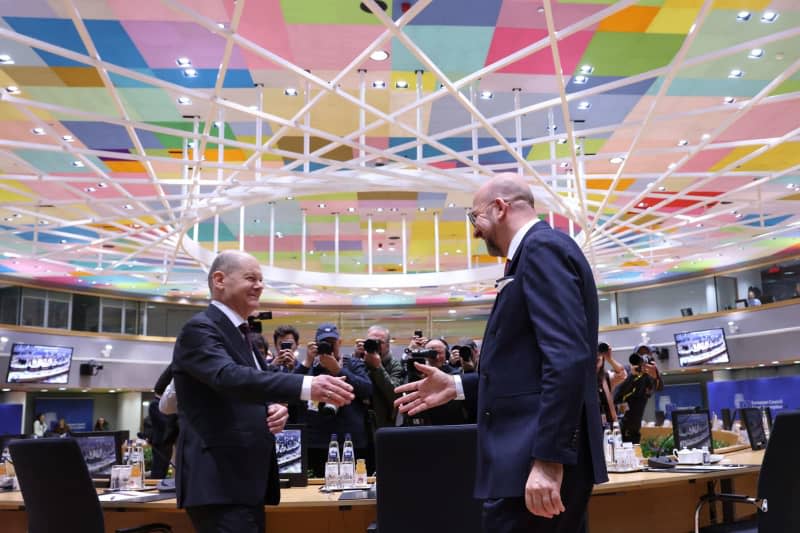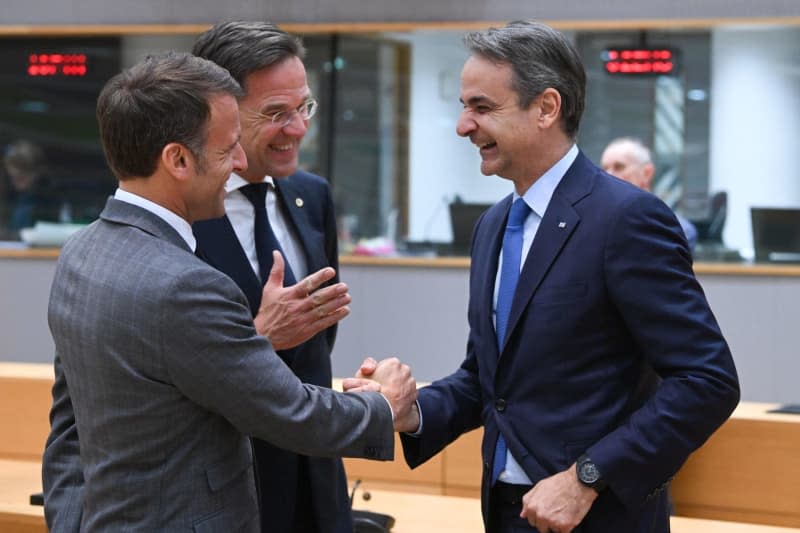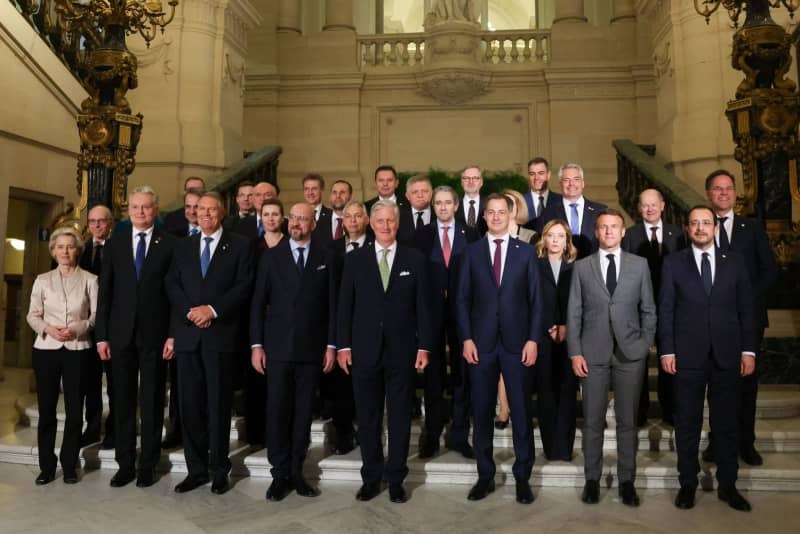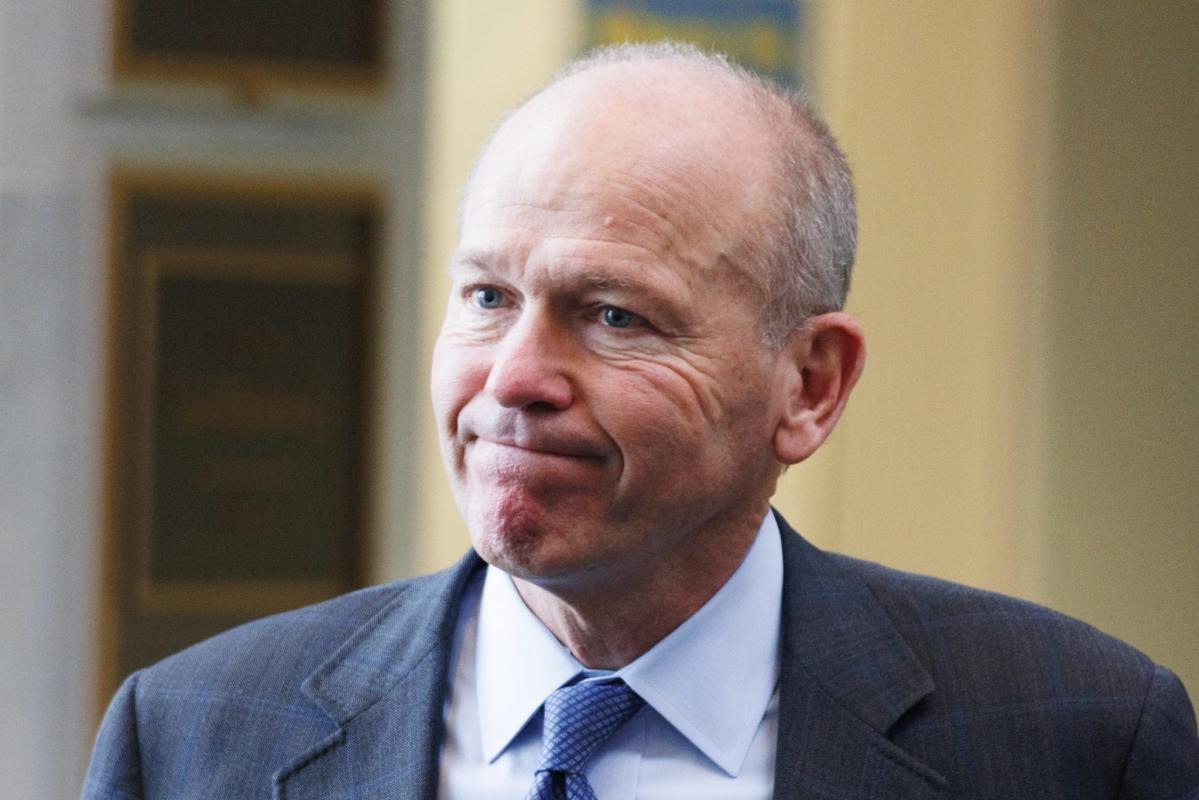European Union leaders agreed late on Wednesday on new sanctions against Iran over its direct attack on Israel.
The EU has decided to “impose sanctions against Iran,” the President of the European Council said Charles Michel told reporters early Thursday morning after the first day of a two-day summit.
“The idea is to attack the companies that are needed for the drones, for the missiles,” he said. Further details are yet to be finalized, he added.
“The European Union will take further restrictive measures against Iran, in particular regarding unmanned aerial vehicles (UAVs) and missiles,” the EU leaders’ statement said.
The EU summit on Wednesday and Thursday was originally intended to focus on the bloc’s economy and competitiveness. But rising tensions in the Middle East pushed the economic discussion to the agenda for the second day.
EU leaders called for calm as Israel considered a response to the drone and missile attack from Iran on Saturday.
German Chancellor Olaf Scholz urged Israel not to retaliate against Iran with a “massive attack of its own” upon its arrival.
Scholz called on Israel to now use its successful defense against Iran’s missile and drone attack “to strengthen its own position across the region.” On this basis, “a corresponding military response would certainly not be appropriate,” he said.
Iran said the drone and missile strikes were in retaliation for the killing of senior Iranian officers in a missile attack on the Iranian embassy in Syria early this month.
Sanctions could be imposed through a regime set up after Iran began supporting Russia’s war against Ukraine by supplying Moscow with drones.
These sanctions ban the export of components used in the construction and production of unmanned aerial vehicles to Iran, and could be expanded to make it more difficult for Iran to produce missiles.
Calls by Israel to designate the Islamic Revolutionary Guards Corps (IRGC), the elite unit of the Iranian armed forces, as a terrorist organization are more difficult to answer.
To achieve this sanction, the IRGC would first have to be prosecuted by a national authority for terrorist activities under EU law. However, Scholz said that a recent court ruling in the EU, regarding the IRGC’s activities, is being investigated by EU officials.
This could open the way for a terrorist designation for the IRGC, Scholz said. Belgian Prime Minister Alexander De Croo said his country would support sanctions against the IRGC.
In addition to the Middle East, EU leaders also discussed Ukraine’s need for air defense weapons with the country’s President Volodymyr Zelensky, who joined the meeting via video call.
In his speech to EU leaders, Zelensky called for more support against Russian air strikes.
He drew a comparison between the support Israel received when American, French and British fighter jets helped shoot down Iranian drones and missiles and the help, or lack thereof, that Ukraine receives against Russian bombing.
“Here in Ukraine, in our part of Europe, we unfortunately do not have the level of defense that we all saw a few days ago in the Middle East,” he said. “Our Ukrainian air and the air of our neighbors deserve the same safety,” he added.
The EU leaders’ statement “underlines the need to urgently provide Ukraine with air defense and to accelerate and intensify the delivery of all necessary military assistance, including artillery ammunition and missiles.”
Germany has already delivered two Patriot surface-to-air missile systems to Ukraine and will deliver one more, Scholz said.
Dutch Prime Minister Mark Rutte said the Netherlands and Denmark are working together to supply F16 fighter jets.
“We know we have to do more than we have done so far to support Ukraine now. This applies in particular to all air defense capabilities that are needed,” Scholz said.











